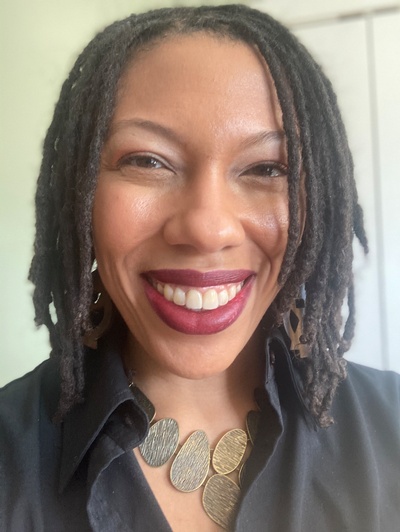by Mariam Williams, Project Director, Chronicling Resistance
One of my greatest joys in this project is witnessing how the Fellows draw connections among their respective areas of research and activism.
I get to see and hear lightbulbs going off in the fellows’ heads every week during small-group research check-ins. There, Malkia Okech’s topic of abolition sparks a question in Khaliah D. Pitts and Nia Minard about the food Black people escaping slavery prepared to nourish each other along the journey. Charlyn Griffith-Oro syncs their curiosity about care with the long history of mutual aid in Black communities. In chatting about performances at Atlantic City’s Club Harlem, Wit López, Andrea Walls, and Germaine Ingram feed each other’s respective searches for Black queer and trans people’s resistance through art, Black Joy, and Black women who go against societal expectations. As descendants of Great Migration migrants and children of immigrants, Katherine Antarikso, muthi reed, Tommy Caison, and Lan Dinh find synergies in their stories of connection to and displacement from land, home, and culture.
This synergetic aspect of the project is also one of the most challenging aspects to express in writing. My notes on these conversations mean little to me out of context, and they were nearly useless for compiling ideas into the post you’re currently reading. I rarely attribute quotes in my shorthand. (Who said, "X," and what does that have to do with what everyone else was talking about that day?) Maybe these check-ins, these quotes, these epiphanies are ephemeral moments not meant to be preserved, even though it is, ironically, those fleeting moments of living as everyday resistance that most Fellows are trying to find in the archives.
In the Fellows' blog posts published from January to early February, you’ll find some of these connections and some of their research questions. What does it mean to be a citizen? What does abolition mean today? How do you hear the voices of the silenced in preserved documents? How do communities of color assert self-determination in a city whose policies have been made to define these communities as "the other" and to restrict them? The answers aren’t easy to find, but the Fellows generously share their thoughts and thought processes, and it is inspiring.
Chronicling Resistance has been supported by The Andrew W. Mellon Foundation and The Pew Center for Arts & Heritage. For more information about Chronicling Resistance, visit our website, resistance.pacslc.org.
Have a question for Free Library staff? Please submit it to our Ask a Librarian page and receive a response within two business days.

